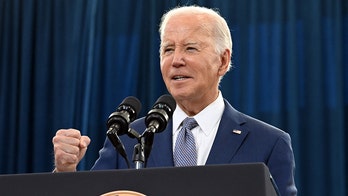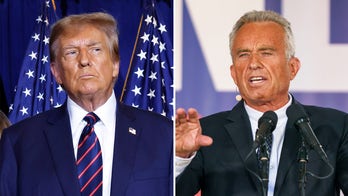Seven activists from different parts of Venezuela have come together to conduct a hunger strike in a Caracas' church demanding the freedom of 77 political prisoners, the setting of a firm date for legislative elections scheduled for this year and the end of censorship and human rights abuses by the regime of President Nicólas Maduro.
Julio Rivas, a 29-year-old state legislator from the state of Carabobo, is leading the protesters, who started their fast last Wednesday in support of five jailed opposition leaders who declared themselves on hunger strike earlier last week.
Among the imprisoned strikers is Leopoldo López, the head of the Voluntad Popular (“Popular Will”) political party, who has been in jail for more than a year on conspiracy charges and hasn’t eaten anything in more than 200 hours – losing 13 pounds in the process, according to party spokespeople.
The other prisoners who are on hunger strike include the former Caracas mayor, Daniel Ceballos, and student leaders Alexander Tirado, Raúl Emilio Baduel and Deivis Oliveros.
A handful of other people across the country have joined in the group’s hunger strike. All together, there are 17 people involved as of Tuesday afternoon, all with the same demands as those of the protesters in Our Lady of Guadalupe church in the Las Mercedes section of Caracas.
“We came to this temple asking the Catholic Church for help,” Rivas told Fox News Latino. “We sent a letter to Pope Francis through the Apostolic Nunciature in Caracas. We hope he receives it before he meets President Nicolás Maduro next Sunday.”
Only one of the seven protesters at Our Lady of Guadalupe lives in Caracas – Kimberly Sierra, a student at Santa María University. Apart from Rivas, there are Anthony Rosales, Laura García and Jesús Gómez from Táchira, in the west of the country; Erik Santana from Anzoátegui, in the east; and Emily Vera from Miranda, in the center and close to Caracas.
The protest began last Wednesday with four hunger strikers – Rivas, Gómez, Rosales and García – who are part of a movement call Juventud Activa, Venezuela Unida (“Active Youth, Venezuela United”).
Rivas explained that they chose Caracas because of the city’s political importance and to try to gain the attention of the Catholic Church.
The last demonstrator to join the strike was Sierra on Sunday, a day after thousands of Venezuelans demonstrated on the streets, answering a call to action made by López in a video recorded from his jail cell on May 24.
“I took the decision suddenly,” Sierra, 20, told FNL. “I just came to visit and support the guys, but I felt ready to join them. This is what I can do to make a change.”
Some of the strikers have personal circumstances that motivated them to join the strike.
“I have known some of the political prisoners for many years now,” Rosales, a 29-year-old student explained. “They are my friends, and they were arrested protesting in the streets. I want them to know that I am doing something out here.”
A paramedic is monitoring the protesters closely, and the municipality of Baruta, where Las Mercedes is located, is monitoring their health every day.
“I am really tired now. My legs are numb, and I am feeling dizzy every time I get up”, Rosales admitted.
Rivas said he understands that Maduro´s government isn’t likely to give in to their requests, but he thinks that this is the last option they have.
“We have tried other things, but the police and the Bolivarian National Guard repress those who take to the streets or rip down any protest camp that we build,” said Rivas, who also participated in hunger strikes in 2009 and 2011, when more than 50 students fasted in front of the building housing the Organization of the American States in Caracas.
“I am here on this hunger strike because I think it will be successful,” Erik Santana said. “People want change, we saw it last Saturday. They are waking up.”
Rivas celebrated his 29th birthday last Friday and Santana turns 24 on Wednesday. “We are celebrating with glasses of Pedialyte and water,” Santana joked.




